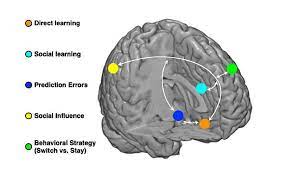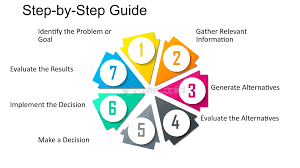List of Ethical Decision Making Models
When faced with ethical dilemmas, having a structured approach to decision making can help individuals and organizations navigate complex situations. Here is a list of some commonly used ethical decision making models:
- The Utilitarian Model: This model focuses on maximizing overall happiness or well-being. Decisions are made based on the outcome that produces the greatest good for the greatest number of people.
- The Rights Model: This model emphasizes protecting and respecting individual rights and freedoms. Decisions are evaluated based on whether they uphold fundamental rights and values.
- The Justice Model: This model prioritizes fairness and equality. Decisions are assessed based on their impact on distributing benefits and burdens equitably among stakeholders.
- The Virtue Ethics Model: This model centers around personal character and moral virtues. Decisions are guided by principles such as honesty, integrity, and compassion.
- The Common Good Model: This model focuses on promoting the well-being of the community as a whole. Decisions are made with consideration for the collective interests and values of society.
Each of these ethical decision making models offers a unique perspective on how to approach moral dilemmas. By understanding these models, individuals and organizations can make more informed and ethically sound decisions in various situations.
8 Essential Tips for Navigating Ethical Decision-Making Models
- Understand the ethical decision-making models available.
- Consider the specific context in which you need to make an ethical decision.
- Evaluate the consequences of each decision-making model on stakeholders.
- Take into account cultural and societal norms when applying a decision-making model.
- Seek input from diverse perspectives to enhance the effectiveness of your ethical decision-making process.
- Be aware of potential biases that may influence your choice of a particular ethical decision-making model.
- Regularly review and update your knowledge about different ethical decision-making models to ensure relevance and applicability in various situations.
- Aim for transparency and accountability when using an ethical decision-making model in organizational settings.
Understand the ethical decision-making models available.
Understanding the ethical decision-making models available is crucial for navigating complex moral dilemmas effectively. By familiarizing oneself with various models such as the Utilitarian Model, the Rights Model, the Justice Model, the Virtue Ethics Model, and the Common Good Model, individuals can gain valuable insights into different approaches to ethical decision making. Each model offers a unique perspective on how to assess and address ethical issues, providing a framework for evaluating choices based on principles of utility, rights, justice, virtues, or communal well-being. Being knowledgeable about these models empowers individuals to make more informed and conscientious decisions that align with their values and ethical standards.
Consider the specific context in which you need to make an ethical decision.
When utilizing ethical decision-making models, it is crucial to consider the specific context in which the decision needs to be made. The circumstances surrounding an ethical dilemma can greatly influence the appropriate course of action. Factors such as cultural norms, organizational policies, and individual values all play a role in shaping the ethical landscape of a situation. By taking into account the unique context in which a decision must be made, individuals can tailor their approach to ensure that their choices align with the values and expectations relevant to that particular scenario.
Evaluate the consequences of each decision-making model on stakeholders.
When considering ethical decision making models, it is crucial to evaluate the consequences of each model on stakeholders. By carefully assessing how each decision-making approach impacts the individuals and groups involved, one can better understand the potential outcomes and implications of their choices. Taking into account the well-being, rights, and interests of all stakeholders allows for a more comprehensive analysis that can lead to decisions that are not only ethically sound but also considerate of the diverse perspectives and concerns of those affected.
Take into account cultural and societal norms when applying a decision-making model.
When utilizing an ethical decision-making model, it is essential to consider cultural and societal norms to ensure that the chosen approach aligns with the values and beliefs of the community. Taking into account these norms helps in understanding how decisions may be perceived and received by different stakeholders. By incorporating cultural and societal considerations into the decision-making process, individuals and organizations can promote inclusivity, respect diversity, and make choices that are sensitive to the unique perspectives of various groups within society.
Seek input from diverse perspectives to enhance the effectiveness of your ethical decision-making process.
Seeking input from diverse perspectives is crucial in enhancing the effectiveness of your ethical decision-making process. By considering a wide range of viewpoints and experiences, you can gain valuable insights that may challenge your assumptions and broaden your understanding of the ethical implications of a decision. Embracing diversity in perspectives not only promotes inclusivity but also helps in making more well-rounded and informed ethical choices that take into account the complexities of different stakeholders’ values and concerns.
Be aware of potential biases that may influence your choice of a particular ethical decision-making model.
It is crucial to be mindful of potential biases that could impact the selection of a specific ethical decision-making model. Our inherent biases, whether conscious or unconscious, can sway our judgment and lead us to favor certain models over others. By acknowledging and addressing these biases, individuals can strive for a more objective and impartial assessment of ethical dilemmas. Being aware of personal biases allows for a more thorough evaluation of the situation, ensuring that the chosen ethical decision-making model aligns with the values and principles essential for making ethically sound choices.
Regularly review and update your knowledge about different ethical decision-making models to ensure relevance and applicability in various situations.
Regularly reviewing and updating your knowledge about different ethical decision-making models is crucial to ensuring their relevance and applicability in various situations. By staying informed about the latest developments in ethical theory and decision-making frameworks, you can enhance your ability to navigate complex ethical dilemmas effectively. Continuously educating yourself on a diverse range of ethical models allows you to adapt your decision-making approach based on the specific circumstances you encounter, ultimately leading to more informed and ethically sound choices.
Aim for transparency and accountability when using an ethical decision-making model in organizational settings.
In organizational settings, it is crucial to aim for transparency and accountability when utilizing an ethical decision-making model. By promoting transparency, organizations can ensure that the decision-making process is clear and understandable to all stakeholders involved. This fosters trust and credibility within the organization and demonstrates a commitment to ethical behavior. Additionally, holding individuals and the organization accountable for their decisions reinforces a culture of responsibility and integrity, ultimately contributing to ethical leadership and sustainable practices within the organization.




